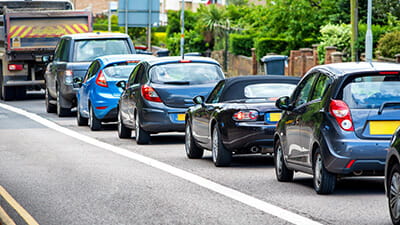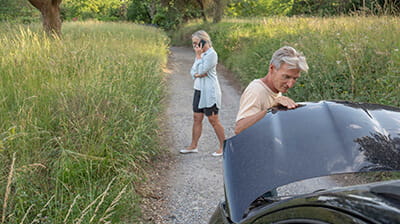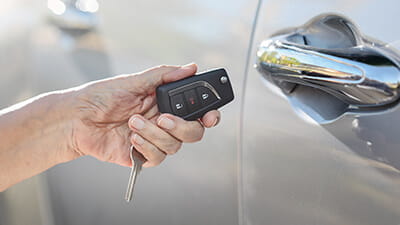
Saga's Automated Assistant
What product would you like to discuss today?
Saga's Automated Assistant
Do you currently have a policy with us?
How does your policy number appear on your documents?
Value Added Tax (VAT) is a tax charged on many goods and services in the United Kingdom. However, when it comes to car insurance and insurance in general, you pay a different tax to the government, which is known as Insurance Premium Tax (IPT).
In this guide, we walk you through what IPT is, what the rates are and how it will affect your car insurance premium.
You don't pay VAT on car insurance. Instead, you pay Insurance Premium Tax. IPT is a tax applied to insurance premiums, and when you pay your provider for your policy, the insurer forwards this tax to the UK government. There are two rates of IPT:
For car insurance, you typically pay the standard rate of IPT. However, some newer cars are eligible for the higher rate if you buy them directly from a car dealership.
Disabled drivers leasing a car through the Motability Scheme, learner drivers and drivers with motor trade insurance are exempt from paying IPT.
Since the government generally imposes a 12% Insurance Premium Tax on car insurance, the higher your premium, the more tax you'll pay.
For example, if your over 50s car insurance premium is £200, adding 12% IPT brings the total to £224, with £24 being the tax. However, if your premium is £500, the total cost will be £560, which includes £60 in tax.
In the United Kingdom, VAT (Value Added Tax) and IPT (Insurance Premium Tax) are both forms of taxation, but they apply to different transactions and have distinct rates.
VAT is applied on most goods and services, with a standard rate of 20%. Some items qualify for reduced rates of 5% or even zero rates. Businesses can often reclaim VAT on expenses related to their business activities.
IPT, on the other hand, is specifically charged on insurance premiums, including car and home insurance. The standard rate for IPT is 12%, with a higher rate also set at 12%. Unlike VAT, you can’t reclaim IPT, regardless of whether you’re a business or a consumer.
You can’t claim Insurance Premium Tax back on car insurance. After it’s been paid as part of your car insurance premium, it’s not recoverable.
Insurance Premium Tax was introduced in the UK on 1st October 1994. The government implemented this tax to address the under-taxation of the insurance sector and to generate additional revenue.
Insurance providers are responsible for sending IPT to HMRC after you pay for your car insurance. HMRC use the money to fund public services like healthcare, education and social care.
When Insurance Premium Tax started in 1994, the standard rate was 2.5%. It has gradually increased over the years to keep up with industry changes and prevent tax avoidance. The latest increase was in 2017, raising the standard rate to 12%.
In 1997, the government introduced a higher rate to prevent VAT avoidance. It began at 17.5% and has been 20% since 4th January 2011.
Saga Car Insurance is arranged and administered by Ageas Retail Limited and underwritten by Ageas Insurance Limited.
Whether you're looking for straightforward insurance or cover that's packed with extras, our car insurance has plenty of options for people over 50.


Choose our highest car cover level Saga Plus and freeze the price of your car insurance for 2 years if nothing changes. T&Cs apply.
There's plenty to explore and learn about our car insurance cover.

Are petrol and diesel cars destined for the scrap heap? What will the 2030 car ban mean for motorists?

Get to know the ins and outs of our car insurance and how you can make the most of your cover

Discover Saga’s 2025 car buying trend report, and explore which car types, features and colours are set to dominate the market over the next year.

Saga reveals what Brits consider the most stressful experiences while driving. Experts decode the results and reveal why 29% have a driving anxiety.

Flexible policies for over 50s, for breakdown cover you can rely on.

As we get older, our driving habits understandably change. So which are the best cars for older drivers? Get some inspiration in this handy Saga guide.

Losing a pair of car keys can be hugely frustrating, but could Car Key Protection Cover give you valuable protection?

Don’t let potholes leave you out of pocket. How to avoid holes in the road or make a claim if you hit one.